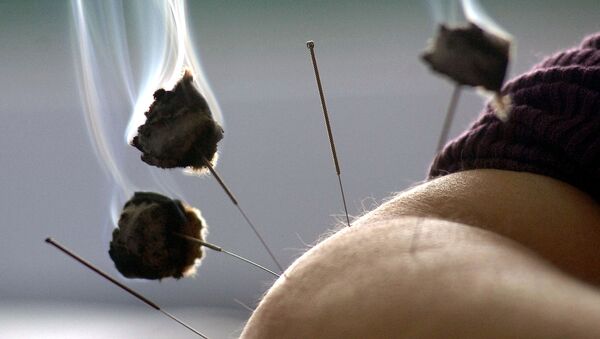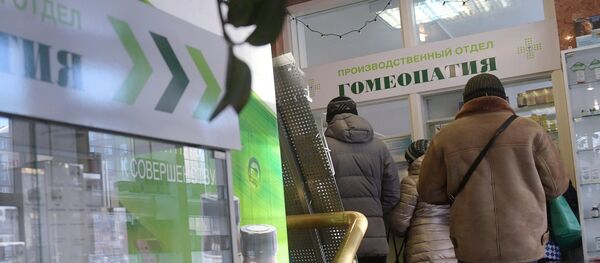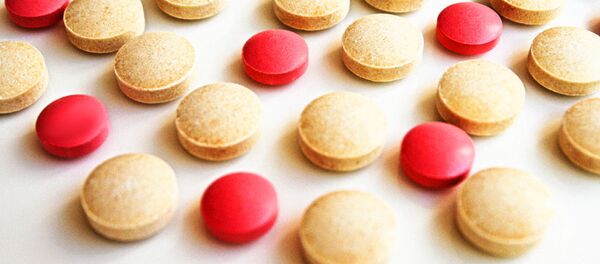Sputnik has discussed the issue with David Colquhoun, from University College of London.
Sputnik: How would you assess the Spanish government’s approach towards alternative medicine in health centres? How reasonable is it?
David Colquhoun: What is the point of prescribing things that don’t work, and it’s very well known that homeopathy and acupuncture don’t work, they’re just elaborate placebos and that’s just a waste of money.
It also endangers people. That’s the case, which gave rise to this ban in part, it’s a good case.
David Colquhoun: I think one reason is just a lack of scientific education, but there is another reason too, and that is that medicine is still pretty imperfect.
There are many things it can’t fix. If regular medicine can’t fix it, then people will be taken in by charlatans who claim that they can. Of course, they can’t, but it’s a natural survival instinct, I suppose.
Sputnik: There is also the notion that homeopathy, “well, it can’t kill anyone.” People say that it can be a sort of complementary treatment to the actual medicine, but this isn’t true, is it? There is evidence to prove that it has a detrimental impact, like, obviously, in this case, when a person actually gave up cancer treatment?
Sputnik: How strong is the placebo effect, because there are opinions out there that it doesn’t really work?
David Colquhoun: Yes, I think, the placebo effect is much weaker than I was brought up to believe. In the 1950s, there was a very influential article, called “The Powerful Placebo,” but that seems to be wrong.
The placebo effects are actually quite small. The trouble is that most trials are not set up to measure placebo effects, because, in order to measure a real placebo effect, you’ve got to compare the treatment with no treatment at all.
The number of people who respond in a group which is given a placebo can be quite high: 30%, 50%, but that is not a placebo effect, that’s placebo effect plus the “get better anyway” effect; and the “get better anyway” effect, known as regression to the mean technically, it seems to be far bigger than any real placebo effect.
The trouble is, you would have got better anyway, but it is very easy to attribute the fact that you got better to the treatment you had. That is a really powerful effect, it turns out.
Sputnik: Getting back to the ban, like the one that Spain is contemplating on alternative medicine health centres, there is always the fear that it could backfire in that it would spare illegal alternative medicine practices and it would be difficult to have any control over this?
David Colquhoun: There is no control at the moment.
People are allowed to tell lies; they get away with it all the time. I don’t think, that would be a sensible, or responsible reaction to it, saying: “there will be underground homeopaths.” Anyway, they are not proposing to ban it altogether.
I don’t actually think we should ban these practices altogether, but the taxpayers shouldn’t pay for them if they don’t work. One. Two, they should not be allowed to make claims which can’t be justified.
We have in the UK something called the Advertising Standards Authority, which actually continually condemns advertisements from these people, but nothing happens. It can’t do anything about them. So, it’s a really toothless organization. I think there is really a case for trying to make advertisements more honest.
Views and opinions expressed in this article are those of David Colquhoun and do not necessarily reflect those of Sputnik.




